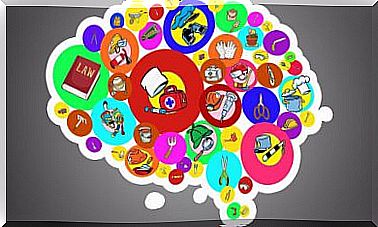Fascination: The Emotion With The Greatest Impact On The Brain

Fascination is the emotion most desired by experts in neuromarketing. Also for any artist, filmmaker or content creator. They all know that if they are able to awaken that feeling in people, they have already succeeded. Because whoever is fascinated by something does not forget that stimulus, the psychological imprint achieved lasts and dazzles, awakens positive feelings and inspires.
Let us now answer a simple question . When was the last time we experienced this emotion? Maybe it was after seeing a work of art, maybe a movie. It is possible that we were fascinated by a landscape, by a piece of music, a latest technological advance or why not, by a specific person. Few realities orchestrated by the brain are so pleasant.
This is so for a fact as striking as it is interesting. Fascination falls within that spectrum that we usually classify as “positive emotions”, but in reality it is capable of provoking in us an endless number of sensations, feelings and thoughts. When we are fascinated we feel happy, joyful, inspired, interested, amazed, and sometimes even in love.
As we can well deduce from this, we are without a doubt facing a psychophysiological state of great importance. So much so that, often, attempts are made to instrumentalize this emotion to influence others. The person or people who manage to fascinate a certain group will not only capture their attention, they will also have acceptance and even admiration in their favor.

Fascination, the most desired emotion
Something that teachers and any educator know is that you have to awaken the spark of fascination in children. It is necessary that the teacher or professor knows how to generate this emotion through the contents so that the teaching is more motivating. This emotion creates a great impact on the child’s mind and only in this way we stimulate the interest not only to learn, but also to discover.
Fascination is a high-powered state of mind. And it is basically for a reason. Any stimulus that generates fascination activates almost instantly our limbic system, that brain region linked to emotions. Thus, once that area is stimulated, endorphins, pleasure hormones that even facilitate the focus of attention and the flow of new ideas begin to be released.
On the other hand, it is interesting to know that the term “fascinate” sinks its Latin roots in another word from which it derives: bewitch. It is curious to know that for a long time this word had a negative connotation. It was believed that anyone who experienced fascination was the captive of some evil power, of some strange influence capable of subordinating the will of others.
At present, that conception no longer has a place. Because if there is something we know from a psychological point of view, it is that feeling fascinated by something is the result of a psychological process of high well-being and significance .
Innovation and fascination always go hand in hand
The big brands in the market, especially the technological ones, know that if they want to reach their customers, they must have a great emotional impact. If we are not excited about that product it is not worth it. Furthermore, if a new product fails to generate fascination, it is because it has not been innovated enough.
Because fascination is defined by a series of very specific components:
- What fascinates us also challenges us because it appears to us as something different that instantly captures our attention. The brain is attracted to something different, stimulating and attractive.
- It also generates desire, expectation and great curiosity.
- If something fascinates us, it in turn produces confidence and security. It does not matter if it is something new, if it is fascinating it is desirable and if we want it, it generates closeness.
When you are fascinated you live in the moment and you are in a state of flux
The psychologist Mihaly Csikszentmihalyi has also studied the emotion of fascination to relate it to the state of flow. He himself explains that feeling fascinated is not the same as feeling interested in something. It is about something deeper.
It is almost like falling in love, because it injects us with a state of absolute concentration. We focus on the here and now and experience a sense of absolute commitment to that something.

The power of aesthetic fascination
Fascination is key in aesthetic emotions. Rafael Bisquerra, professor at the University of Barcelona, defines aesthetic emotion as the response generated by what the brain interprets as beautiful. However, we could go further. Because in reality, we don’t just get excited about what is pleasing or attractive to the eyes.
The brain is also fascinated by what makes it mysterious and deeply interested. Thus, studies such as the one carried out at the University of Belgrade (Serbia) provide us with something relevant. Few things have a greater impact on our mind than what seems ambiguous to us. When an aesthetic stimulus appears that combines something known with something unknown. the brain awakens, is inspired, and is impressed.
Because what fascinates us makes us want to know more. It is like observing the Great Sphinx of Giza. We are attracted by its size, location, shape and history. However, what really catches us is the mystery, not so much its beauty. When the aesthetic is combined with the challenging, the imprint is greater and our emotions become powerful …









